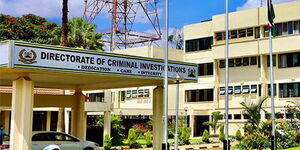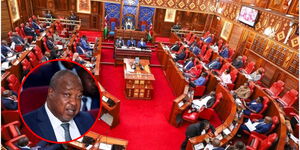The government of Kenya has announced the opening of a special import window to allow the entry of raw sugar imports into the country in a move to address a critical shortage that has crippled the sugar industry.
Speaking on Thursday, August 28, while visiting the Kibos and Allied Industries in Kisumu on Trade Cabinet Secretary Lee Kinyanjui revealed that currently, the country is facing a 400,000 metric tonne deficit that can only be met by allowing imports.
“We don’t have enough raw sugar to process industrial sugar. As a result, we have to import because factories such as this one in Kibos, which cost more than Ksh2 billion to set up, have not worked since 2016,” the CS said.
According to Kinyanjui, it is important that Kenya meets these demands since raw sugar is an important aspect in different industries in the country, and its shortage affects many businesses.
Kinyanjui explained that the importation window will only serve industrial sugar production and will not interfere with the local production of sugar.
“And industrial sugar is processed for use in the pharmaceutical industry, for use in the food industry, in the beverage making industry, and all that. So as a result of that, we have to import industrial sugar because we don't have enough raw sugar,’’ the CS continued.
The CS said the importation was a temporary measure while the government implements a programme to boost cane production in collaboration with farmers and county governments, targeting self-sufficiency within two to three years.
“So we will be looking into how we can allow the raw sugar in the hope that farmers within this region and in the country at large, in the near future, we'll be able to produce enough sugar both for domestic consumption and industrial consumption,’’
The CS said that sugar factories will be closely monitored to strengthen their engagement with farmers and ensure a reliable supply of cane to mills through grower schemes.
Meanwhile, the CS has maintained that the importation will be under strict scrutiny, with emphasis on the country’s regulations.
“Importation does not mean we suspend our regulations. There are mechanisms for quality control, and this will be followed to the letter. What we are trying to end is the culture of importing what we can produce locally,” Kinyanjui said.
Kinyanjui also assured that the government’s top priority remains protecting local industries while conserving foreign exchange.












